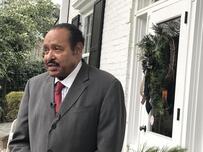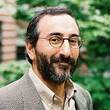weekly column
|
Each week, find a commentary on something connected to verses of Torah or another source of wisdom
|
|
Each week, find a commentary on something connected to verses of Torah or another source of wisdom
|
 Wisdom Wherever You Find It Our rights are self-evident, but they are not self-executing. Rep. Steny Hoyer I have long believed (and written about previously) that God did not create sin in order to prohibit it. That is to say that stealing, murder, adultery and lying and some 500-plus more prohibitions in the Torah were more an indication of the capacity of humanity to get into trouble of all sorts than of the Creator’s sour view of human nature. If, left to their own independent devices, people always did the right thing, the Ten Commandments would have been the Three Enhancements (I am the Lord, honor your parents, observe the sabbath) and we probably would have had the Two Books of Moses. As a theistic believer, I also believe in sin. Sin is that which separates me from God, or from godliness if you prefer. But you do not have to believe to understand this concept of sin. Sin is what separates you from goodness, rightness, loving-kindness. And that’s why both religion and government have laws – to define wrongful behavior and provide a path to rightfulness. Oh, Jack. How religious of you. But it’s not so farfetched, I contend, to consider the analog between religious law and secular law appropriate. Sure, there’s the obvious comparison between Thou Shalt Not Murder and laws against homicide. And you can draw a line from prohibitions against gossip and talebearing to slander, libel, and words you never heard in the Bible. But it is also correct to consider that something that does not appear at all in Scripture – civil rights – is nonetheless grounded there in ways expressed and protected in our society. There are human hierarchies in the Bible, to be sure. The Children of Israel (formerly Hebrews, later Jews) enjoy a favored position. Certain other tribes are protected, others are suspected. And then there are slaves. I point out, these are not “enslaved people” as far as the Bible is concerned. And neither are they indentured servants, as Jews can become in lieu of debt repayment. They are members of certain tribes who can be bought and sold and who, though mandated to receive respectful care by their masters, are not entitled to redress if injured or worse. It is telling that slavery disappeared from Jewish tradition a very long time ago. That’s not to say no Jews since Biblical times (and into the 19th century) ever were enslavers, but within Jewish law and tradition, slavery became understood as inconsistent with the bedrock belief about the dignity of human existence. How? I would suggest that that the moral repugnancy of slavery became self-evident. (The prejudice against outsiders did not completely die with the end of slavery. But that’s another story.) Sometimes religion is ahead of society and sometimes it is the other way around, but I hope that, at least in the United States, they are about at the same place. As Rep. Hoyer says, our rights are self-evident. If you understand the meaning of that term, you know that they are not divinely revealed, except perhaps in the broadest possible sense of the words, but that our country was founded on the notion that every person is of equal worth and privilege by definition. To believe otherwise, to behave otherwise separates you from goodness, rightness, loving-kindness. It is sinful. Left to our independent devices (because we are, after all, an independent people), we have exercised our capacity to get into trouble of all sorts by affirming self-serving interpretations of those rights at the expense of the same rights of others. We even formalized the human hierarchies in the document establishing the country where all men are created equal, choosing to define “men” by race, gender, and other designated privileges. But self-evident is self-evident. So, despite the ignorance of some and the bigotry of others, we have been trying to legislate and educate our way out of sin for more than 250 years. That’s not as long as it took the Jews to abandon the Biblical permissions of slavery, but it’s long enough. If being self-evident were enough, the Bill of Rights, which happen to number ten, would have been the Three Suggestions (separate your recyclables, buy low/sell high, don’t buy a car in its first model year). But even the self-evident needs some help.
0 Comments
 Wisdom Wherever You Find it Because of you, I live. Kinley Strohl There are all sorts of friendly rivalries between the wisdom of Islam and Judaism. Arabic and Hebrew, the native languages of each tradition, have at least as much in common as French and Spanish, but there is no sacred literature that originated in the romance languages. When I discover that something I learned from the Bible or Midrash has an analogue in the Qur’an or Hadith, I am delighted. I will admit it wasn’t always that way for me. It is amazing how possessive you can feel of something that you claim is a universal truth. If I heard something I recognized from Islam (or any other tradition, for that matter), I used to think immediately, “Well, we had that first.” Like it makes a difference. Now, I accept it as validation. If something I consider to be revealed truth has been revealed more than once, it seems to me I can spend less time worrying if it is genuine. And I have become pretty liberal in my definition of that validation. For example, does the narrative of Abraham’s offering of his beloved son have enough to teach if I learn it from Isaac and you learn it from Ishmael? If parallels are good, identical reflections are even better. The Mishnah, teachings from the rabbis who lived in the early centuries of the common era, contains a discussion of the essential holiness of every human being. After expanding on the reason that all of humanity has a common ancestor in the first earthling, as the Bible says, the teaching insists that whoever preserves a single life preserves an entire world. The Qur’an affirms that exact same teaching as part of its holy and immutable revelation. Even if you are neither Jewish nor Muslim (or even if you don’t profess a faith at all), how cool is it that as a matter of undisputed principle, the dignity and centrality of every human being is affirmed without argument in distinct “philosophies.” When a teaching like that is also validated by the realm of science, I think it is more credible still – not because only science is true, but because also science is true. The differences among people of distinct geographic origin, racial heritage, ethnic identity, and any of the other ways we have found to slice and dice the human family are negligible on a molecular and genetic level. Each of us has all of us in us. Preserving a single life preserves an entire world. That’s not to say we do not have our distinctive emphases that make some of us tall or brown or inclined to like chocolate ice cream more than vanilla. Or that, more than we’d like, something that threatens that entire world emerges in a single life. A bunch of years ago, a seven-year-old girl was diagnosed with cancer that could have ended her life. Her hope was a bone marrow transplant. A nursing student in Pittsburgh heard about it and, true to her studies, took the test – a cheek swab – to see if she could donate. “All I knew was that she lived in the United States and that no one in her family was a match,” said Sarah Aiken. Sarah was that match. On the weekend of her wedding, that little girl, by then a healthy teenager, showed up to celebrate the couple and meet the woman who had saved her life. As you can imagine, it was an emotional peak to an already powerful time. The girl, Kinley Strohl, gave her donor a charm bracelet with these words: Because of you, I live. That phrase turns up in a lot of places, too. Thanks to this case – and others like it – there is a remarkable validation that is only possible because of the partnership between sacred wisdom and the endeavor of science. Whoever preserves a single life preserves an entire world. One world saved another. You might, too.  Wisdom Wherever You Find It Silence can’t be misquoted. Bishop Larry Campbell In Hebrew, a “koontz” is a trick, sometimes what in English would be called a prank, sometimes a hack, and sometimes what a smart aleck says to get away with something. I really considered using a koontz for this column, putting Bishop Campbell’s words at the top and leaving the rest of the page blank. But I can think of other ways to provoke eye-rolls and cheap laughs. Plus, I don’t think his observation is always right. The context of his remark is worth telling. He and I served together on the Commission on Diversity, Equity, and Inclusion of the Commonwealth of Virginia (how’s that for a title?) established after the demonstrations in Charlottesville that attracted violent extremists, mostly from among domestic supremacists. The work of the commission lasted over a year, across two administrations, and yielded very little in the way of measurable results. If you have never worked with a large bureaucracy, you may find that more discouraging than it should be. If you have, you know that changing the course of a cargo ship from a rowboat looks impossible in the moment, but even a slight adjustment can affect the vessel’s direction significantly before it reaches port. As part of our work, the members of the commission spent time in groups of a dozen or so to talk about our own experiences that challenged a sense of being fully enfranchised in community and society. As you might imagine, a collection of citizens that was racially, religiously, ethnically, geographically, and self-identifyingly diverse produced some very powerful personal stories. There were tears and shivers and a whole bunch of hugs as the stories of discrimination, disadvantage and denigration were shared, mostly in quiet tones and the expected combination of sorrow and shame. I found it very hard to wrap my mind around how the people in the room – indigenous, gay, black, rural and others – could find the equilibrium to contribute to our efforts enthusiastically and optimistically after the formative experiences they shared. Only one person wasn’t talking. When I asked him why he wasn’t saying anything, he replied with a deadpan look on his face, “Silence can’t be misquoted.” It was the perfect thing to say in that room so thick with emotion you could almost hear the hearts breaking. The room exploded in laughter (which brought people from other groups rushing in to see what happened). The bishop wasn’t trying to pull a koontz. He correctly perceived the hazard of basing important justice work on a collection of grievances. The notion that by addressing the particular individual or group concerns to correct a particular circumstance – tribal land claims, local teacher shortages, lack of broadband access – our Commonwealth could declare victory and move on was simply false. It was important for us to know each other as stakeholders, but not to presume a course of action based on sympathies alone. Our concerns needed to be systemic, not piecemeal. Our commission was formed because of a battle over a statue. Our work involved more than figuring out what happened that August day in Charlottesville. At the same time, there are times when silence speaks volumes, and volumes can be easily misquoted, or at least read selectively. The Talmud insists that silence implies agreement, and there are times when that agreement is morally wrong and times when that agreement is factually wrong. But that’s the subject of another discussion. When the work of the commission ended, we send out a note of thanks to each of the members acknowledging that the dreams we had when we first met felt unrealized despite our best intentions. But we also listed the initiatives that emerged out of our collective work, the individual initiatives we inspired and the forward motion to which we contributed. We were in that rowboat, alongside a ship filled with Virginia’s long history and entrenched culture, pushing hard against the bow in an open sea. Take a look at the heading of the Commonwealth and how, in these years, it has shifted in new and more just directions. The course correction is far from complete, but it is underway. If you ask me if the Commission on Diversity, Equity, and Inclusion had much to do with that, I will have no comment. Silence can’t be misquoted.  Wisdom Wherever You Find It To many a modern Jew, the Tanakh is at once a holy book and an embarrassing one. Benjamin Sommer He’s talking about me. Tanakh is an acronym for the Jewish Bible formed from the first letter of each of its three divisions – Torah (the Five Books of Moses), Nevi’im (the prophetic literature) and K(h)’tuvim (the various scrolls and historical writings). Some folks call it the Old Testament, a name I used to take great offense at until I got old myself. When I refer to it in English, I mostly just call it the Bible. People who want a more expansive definition of what constitutes that collection are welcome to raise the issue. What I love about the Bible is how messy it is. You can’t get past the second chapter of the first book (Genesis, for those of you uninitiated) without finding a contradiction. The scientific illogic of the story of creation – in which plants spring up from the newly-formed world before the creation of the sun – is apparent to anyone who has put a healthy Ficus tree in a moving van for the half hour it takes to get to your new place. And the unanswered questions about where Cain and Abel got their wives and who the giants were that coupled with human women are mind-bending. And those are only a few of the narrative problems. Wait until we get to Leviticus! As the (purported) record of God’s interaction with human beings in general and Jews in particular, the Bible’s claim to authenticity is powerful for believers like me. When I am asked by skeptics how I explain verses that are inconsistent with what I believe the divine will to be, my go-to answer is that the Bible is true, just not always accurate. That generally gives me some time to escape while the listener is parsing my reply. But that answer does not work well when considering certain non-negotiable aspects of the eternal instructions for being a Jew in right relationship with God. For example, if I accept the notion of sin (I do), then how do I return to right relationship? The Torah prescribes animal sacrifice and does so in such specific terms that even my modern and squeamish sensibilities cannot substitute “something of material worth” for the unblemished goat, let alone contrition, prayer and a generous act without knowing it is a hack. I find myself embarrassed by both belief and doubt, by both practice and neglect. My consolation and comfort are that the Bible itself seems to be self-aware, metaphorically speaking, of the inconsistencies and challenges that emerge not just in the Torah, which covers a relatively contained period of history, but in the Nevi’im and K’tuvim, which cover a much broader span of history and geography. Of course, we are thousands of years and billions of experiences beyond even that sweep of reportage. If there is embarrassment about the contradictions, inconsistencies, anachronisms, and outrageous presumptions in this sacred collection, it is holy embarrassment. It is a commitment to struggle with the Tanakh and with what is in it in the name of being in a living relationship. It may be that there is no time that is more embarrassing than the holiest day on the Jewish calendar, Yom Kippur. As remarkable a day as it is with its message of the power of atonement and forgiveness and its penetrating ritual and liturgy, there is only one small part of the day that resembles the Biblical origin of the ritual. Buried in the doldrums of the afternoon, a long telling of the atonement sacrifices and ceremonies in the Temple – which has not stood for almost 2000 years – is often truncated or eliminated by us embarrassed contemporary Jews. I have grappled with and groaned through it fifty or sixty times but finally arrived at a place that justified my holy embarrassment, thanks to the circumstances of this terrible pandemic that opened opportunities I might otherwise never have experienced. Ishai Ribo, an orthodox Jewish Israeli folk-rock singer, delved into the service of the High Priest on Yom Kippur and created his own interpretation. It became the basis of that liturgical dead spot at B’nai Jeshurun synagogue in New York City in a way that moved me to deep (and penitential) tears in my Virginia home. (It begins at the 5-hour, 42-minute mark here: https://www.youtube.com/watch?v=Lx7dBX00lR0. Be patient with the introductory comments – you will not be sorry.) The potential for such moments of explosive meaning keeps me returning to all the difficult parts of my Holy Scripture. Not despite my embarrassment. Rather, because of it.  Wisdom Wherever You Find It I don’t kid myself that anything I do is ever done. Mazie Keiko Hirono One of the most underappreciated punctuation marks in the English language is the ellipsis. It is three periods in a row, and it indicates that something has been omitted. When used in a quotation, the missing part is often some of the words. But when reporting a suggestion, an emotion, or a potentially controversial idea, it is an invitation to the reader to finish the thought out of their own experience. I am a serial abuser of the ellipsis. It is my belief that any idea worth considering is an invitation to the reader to add their own perspective. And while I probably give the impression (okay, maybe sometimes intentionally) that I have the whole picture, the fact is that the observation of Sen. Hirono of Hawaii is the wisest attitude to have. Though she has accomplished plenty in her life of public service (read her book, Heart of Fire, An Immigrant Daughter’s Story), she learned early that whatever goal she achieved was never permanent. It is true of federal legislation, which is of no surprise to anyone. But it is likewise true of a garden or even the deepest of friendships. I remember hearing her say those words and connecting them in my head to one of the earliest teachings I learned from the Talmud, the compendium of Jewish law and lore. “Yours is not to complete the work, but neither are your free to refrain from it.” It is amusing to me that I went there because Sen. Hirono identifies as a Buddhist, not a theistic Jew like me. And the rest of that Talmudic teaching is a thinly-veiled admonition about God’s insistence that we all overcome our laziness and do God’s will while there is time. There’s a catchy tune to the whole thing. But the essence of the teaching, wherever you find it, is captured in those three dots. Imagine them at the end of any claim of achievement or accomplishment: I have fallen in love… We bought a house… The voting rights bill has reached the floor… The war is over… So whether it is with an autonomous authority (God) or it is with an internal compass (mindfulness), what does the ellipsis demand of you? When those three dots appear at the end or even in the in the middle of a sentence, what are you supposed to do? I think the first thing to do is wonder why they are there. What was the author’s intention in leaving something out? Compare these two thoughts: Though she spoke to him tenderly to him, his heart did not respond. Though she spoke tenderly to him, his heart did not respond... Call it provocation or laziness, when there is something known to be missing, the reader must (quite literally) fill in the blank. The thought cannot be complete without the participation of the reader’s curiosity and conjecture. The ellipsis is a convention of punctuation and a literary device. When it is used to create intrigue in a written text, yours may not be to complete the work, but neither do you find yourself free to refrain from trying. Used in print or on the screen, it allows the author to purposely engage the reader. But real time has a place for the ellipsis as well, not as punctuation, but as mandate. Nothing we do is ever done, no matter how definitively we declare so. Sen. Hirono’s observation illustrates the truth that life is an ellipsis. Either something is missing in the middle, or something is left to be done at the “end.” You shouldn’t kid yourself otherwise. There may be no author to engage you, but the ellipsis is there nonetheless. I am a little worried that I have beaten this metaphor to death, but… |
Archives
October 2023
Categories |